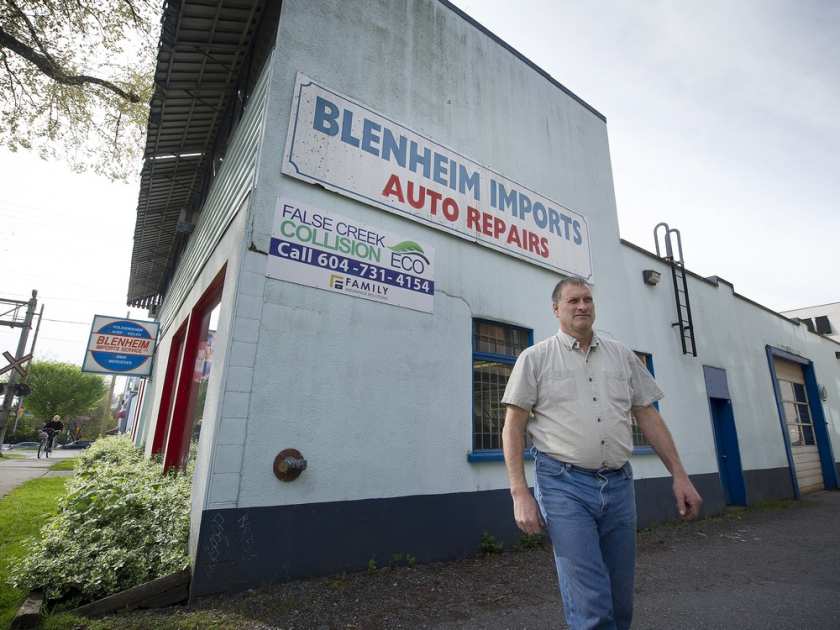By LAURA JONES
Pete McMartin’s recent column, Running on Empty: The Westside loses its garages, gives an excellent glimpse into the challenges facing many businesses: “Vancouver isn’t only becoming a prohibitively expensive city in which to live, but one, also, in which it’s difficult for small independent businesses to survive.”
It is in vogue for politicians to worry about affordability for the middle class. But what of affordability for small business owners who are themselves typically middle class and who support thousands of middle class jobs?
For the business owners McMartin interviewed, property taxes were a significant factor in their decision to close, with each paying around $100,000 a year in property taxes. When you consider how many auto repairs it would take to pay this tax bill alone, you start to understand the affordability challenges that small business owners face. Business owners also pay provincial and federal income taxes, as well as EI, CPP, and WCB premiums for employees.
On top of government tax bills, business owners must generate enough money to cover the business of being in business — paying for supplies, equipment, rent, employee wages, and their own wages. Artist Andy Warhol captures the creativity this takes: “Being good in business is the most fascinating kind of art. Making money is art and working is art and good business is the best art.”
For some municipal politicians, including Vancouver’s mayor, support for the “living wage” has become a way to translate concern over affordability into a more concrete policy position. The idea is to pay city staff and those that contract with the city a wage that covers basic costs for a family of four with two income earners. New Westminster was the first municipality to adopt it in 2011.Vancouver’s “living wage,” according to the Canadian Centre for Policy Alternatives is $20.64 an hour or roughly $40,000 a year. The living wage policy is not so great for small businesses that get shut out of contracting with the city for things such as food deliveries and ground maintenance if they can’t pay their staff the living wage.
In Vancouver, we continue to lose businesses even while our population grows — between 2012 and 2014, there were 987 fewer business licenses issued.
Do these well-intentioned mayors realize that most small business owners fall below the living wage themselves? Business owners earning less than $40,000 a year outnumber those earning more than $250,000 by a ratio of 4 to 1. In fact, about a third of business owners earn less than $33,000 a year, and two-thirds earn less than $73,000 a year.
In the quest to make things affordable for the middle class, policies like the living wage miss the point. A thriving middle class and a healthy small business sector go hand and hand. When small businesses do well, they can afford to hire more and pay more, which is the point. Shouldn’t supporting the art of small business get at least as much attention as the living wage debate does?
The businesses that McMartin interviewed are not alone. In Vancouver, we continue to lose businesses even while our population grows — between 2012 and 2014, there were 987 fewer business licenses issued. Until municipalities get more serious about listening to small business, you can expect more McMartin stories in your neighbourhood. Which begs another important question: How do municipal governments think they will achieve their “affordability”, “sustainability” and “livability” goals without small business?
Laura Jones is executive vice-president of the Canadian Federation of Independent Business.




